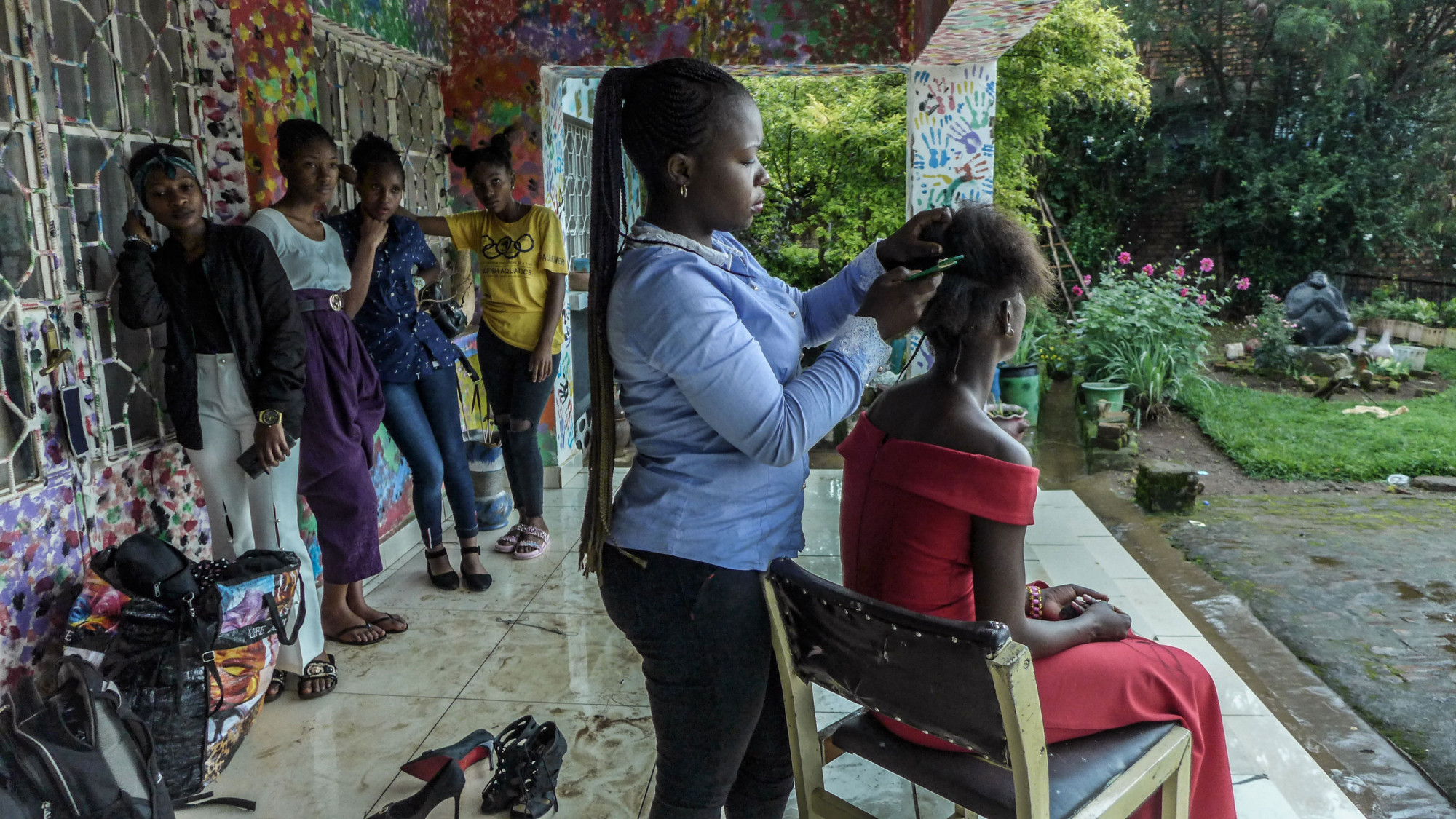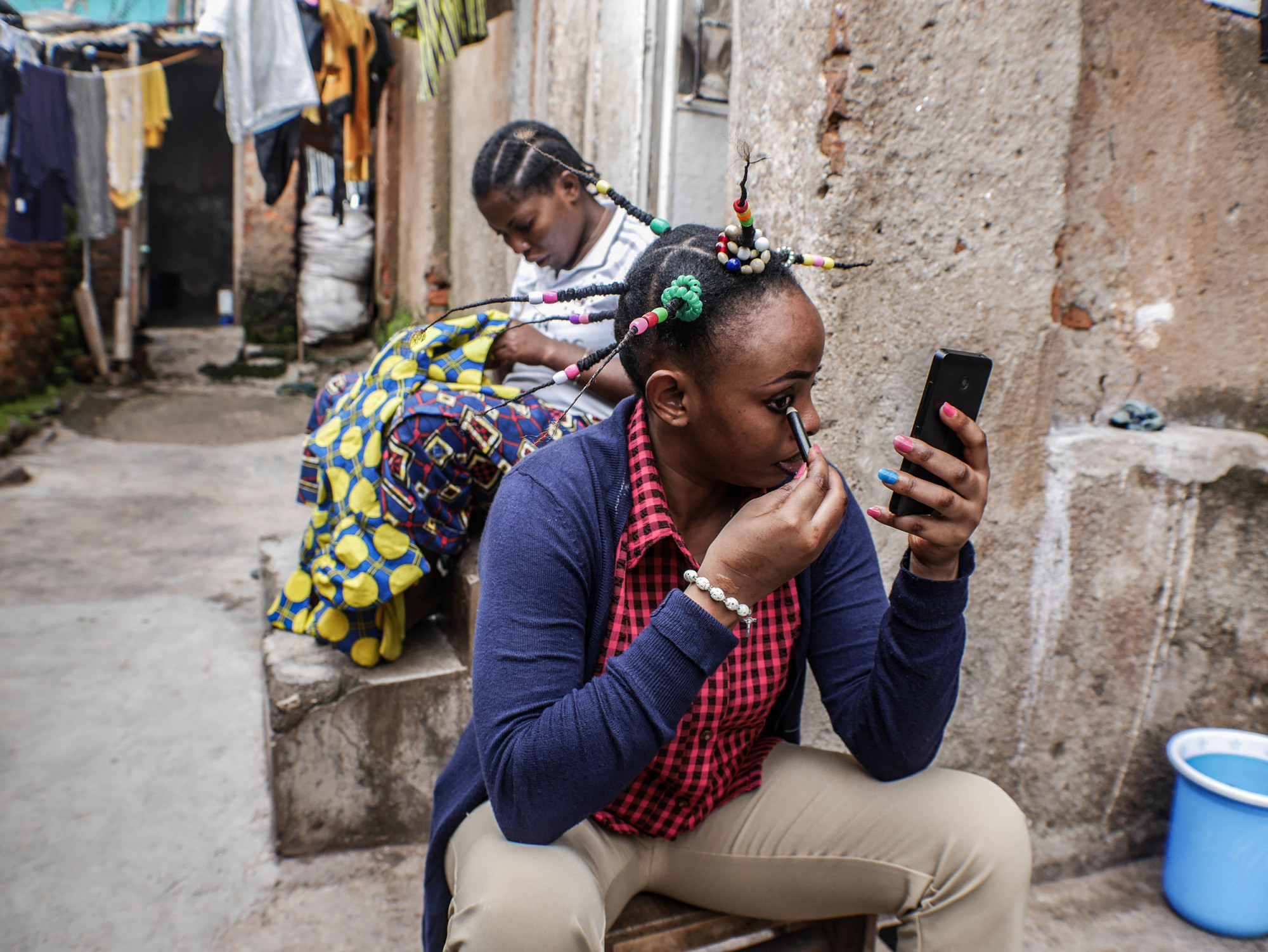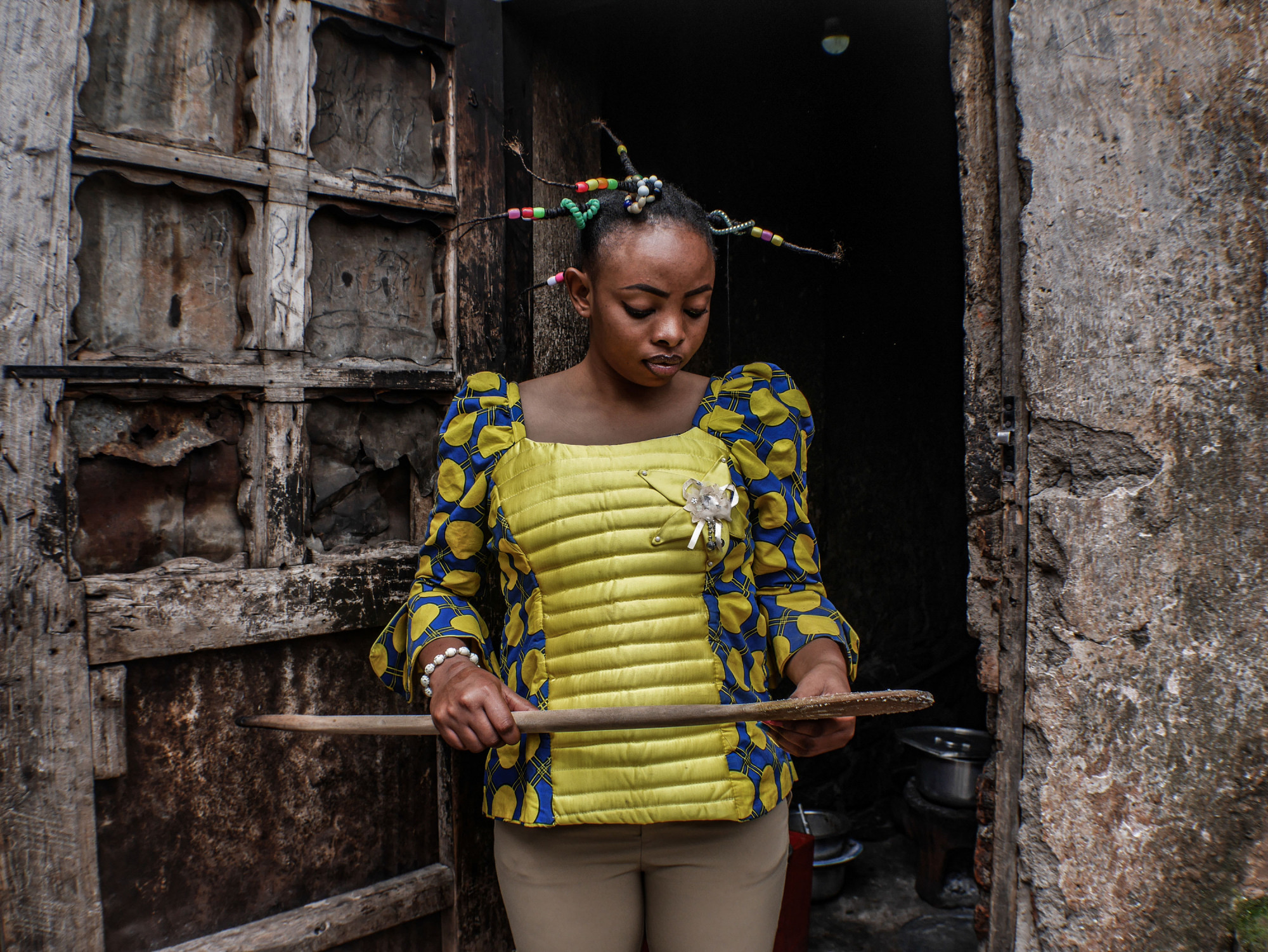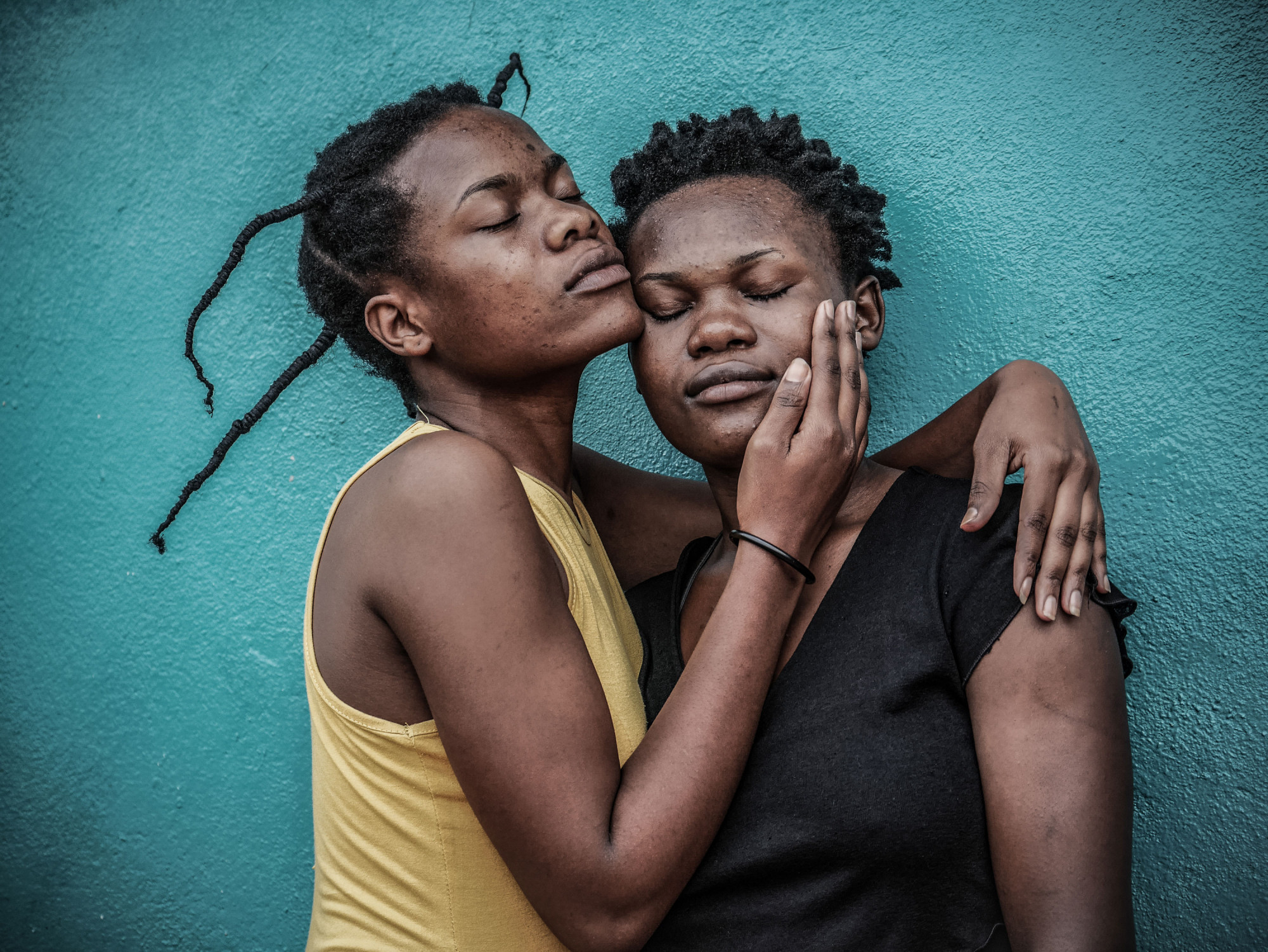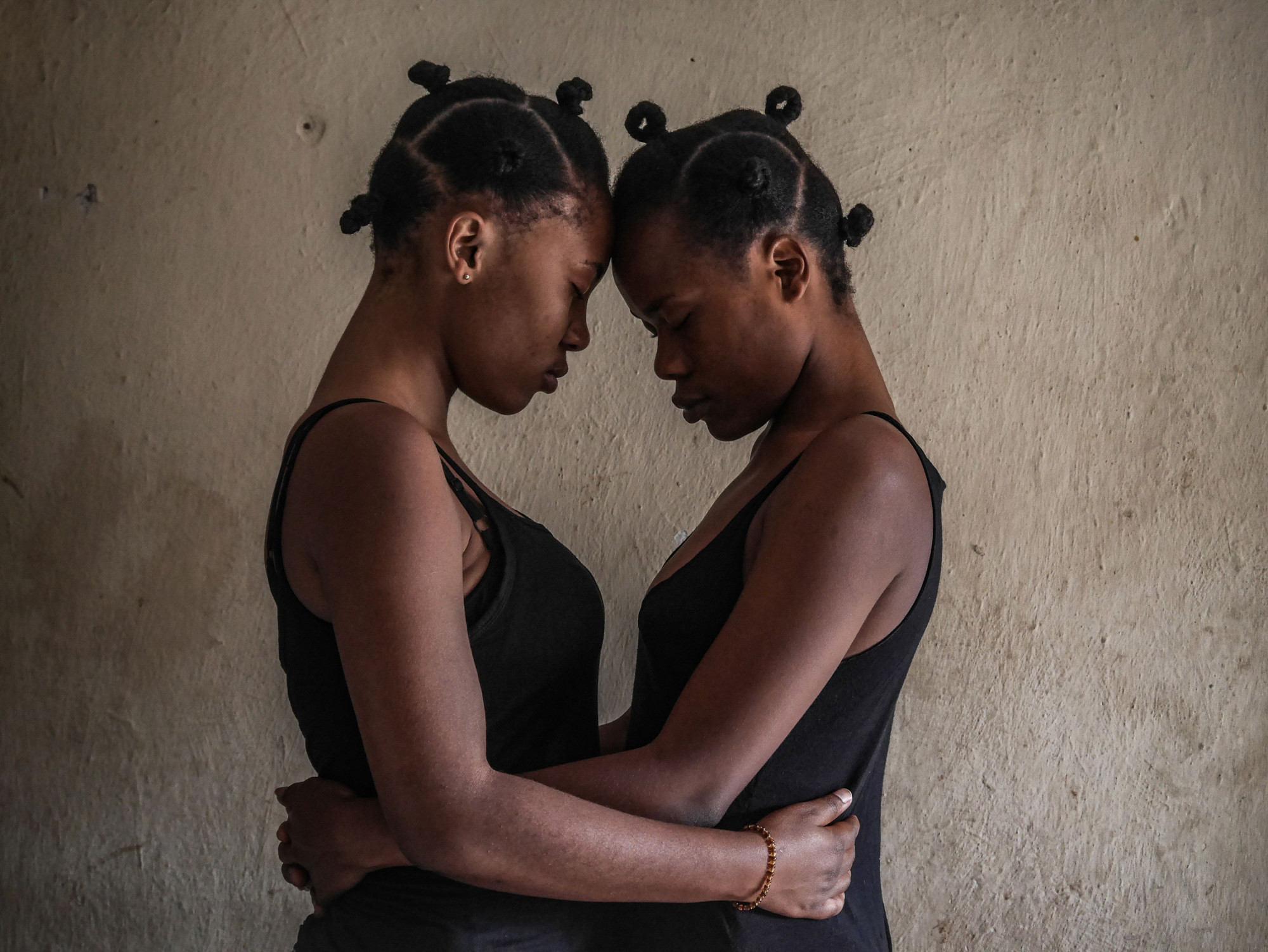

Goma and Bukavu, December 21, 2020
Reading time:
7 min
Each elaborate weave takes hours to create, but with few special events such as weddings and baptisms taking place during the months of confinement and curfews, and with everyone suffering from the economic downturn caused by the pandemic, business steadily dwindled. Still Kasanani refused to close her doors even as restaurants and other businesses were forced to shut under health restrictions imposed by the government.
“If we close, we don’t know how we will survive because if we don’t make money we cannot live”, Kasanani said, echoing a sentiment expressed by businesses big and small suffering through the pandemic the world over. “Even just doing two or three people’s hair is better than closing.”
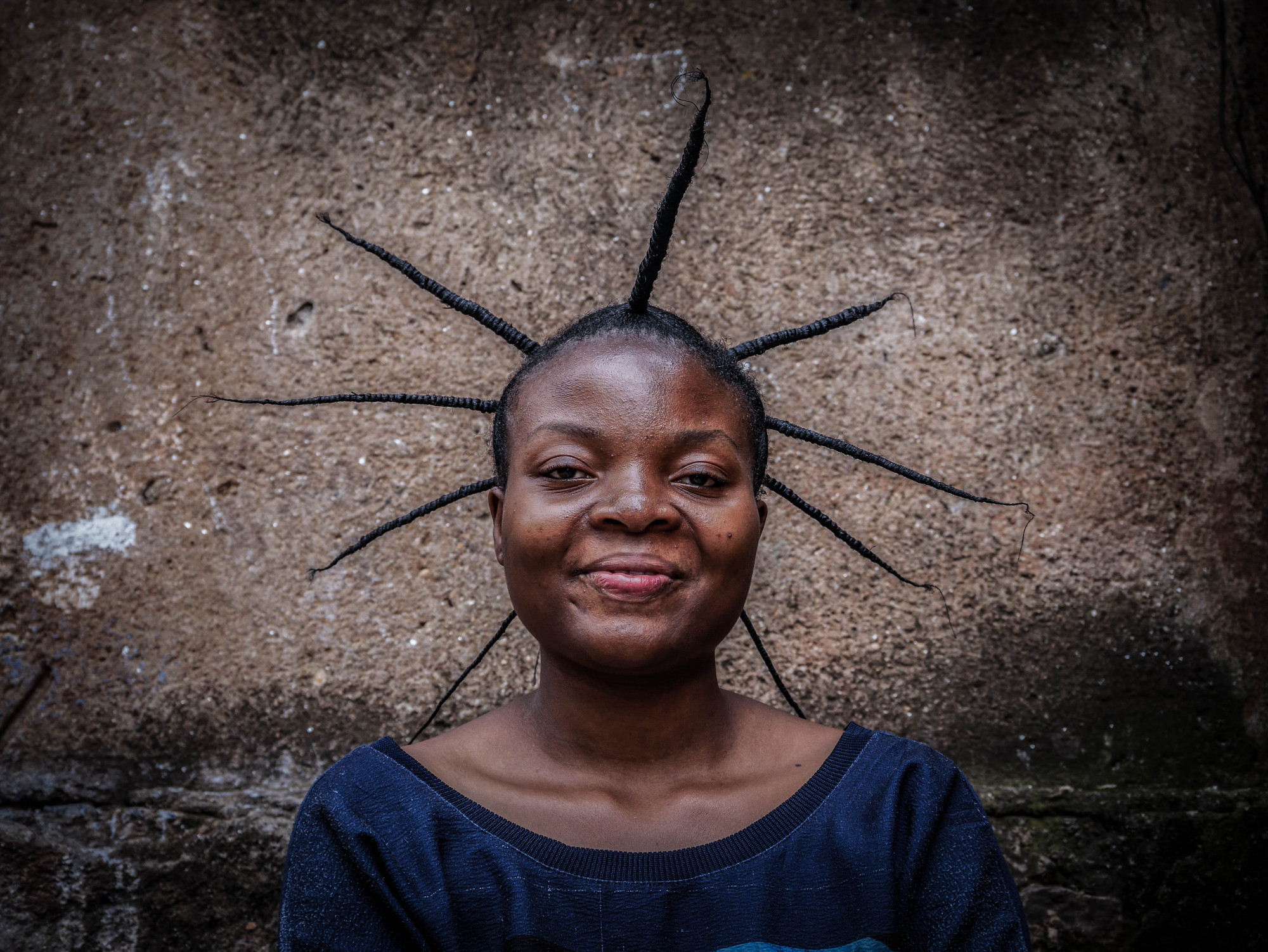
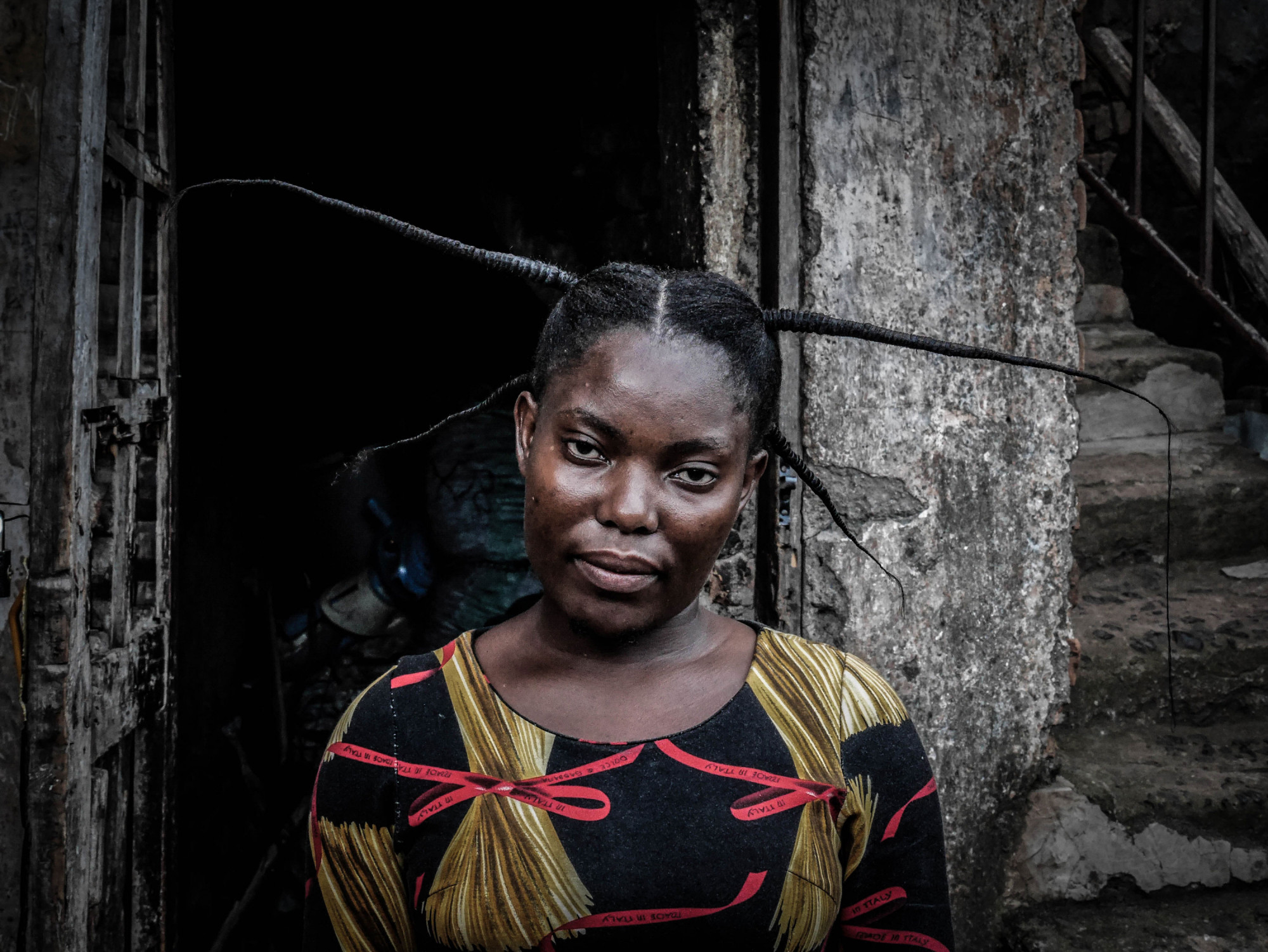
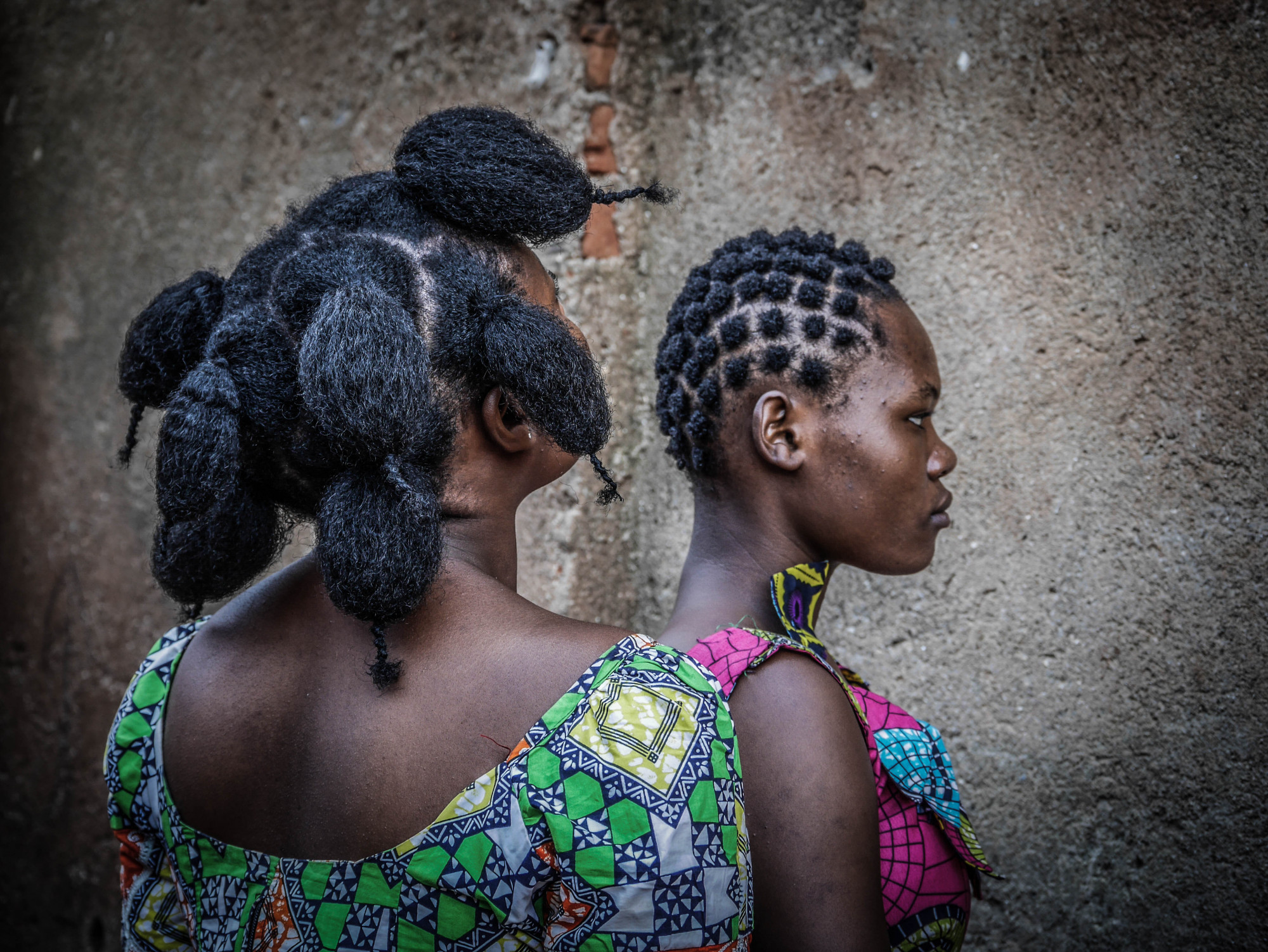
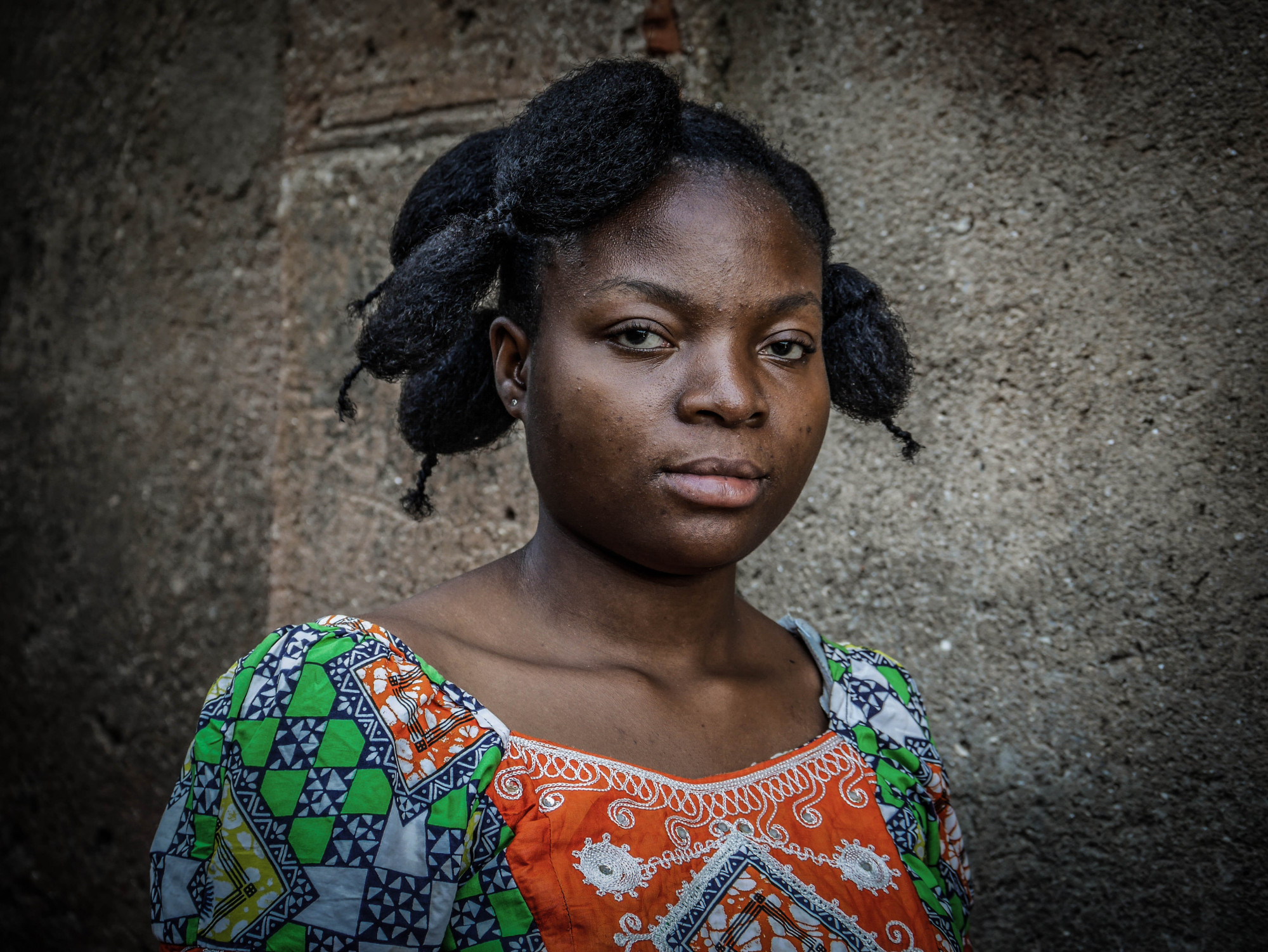
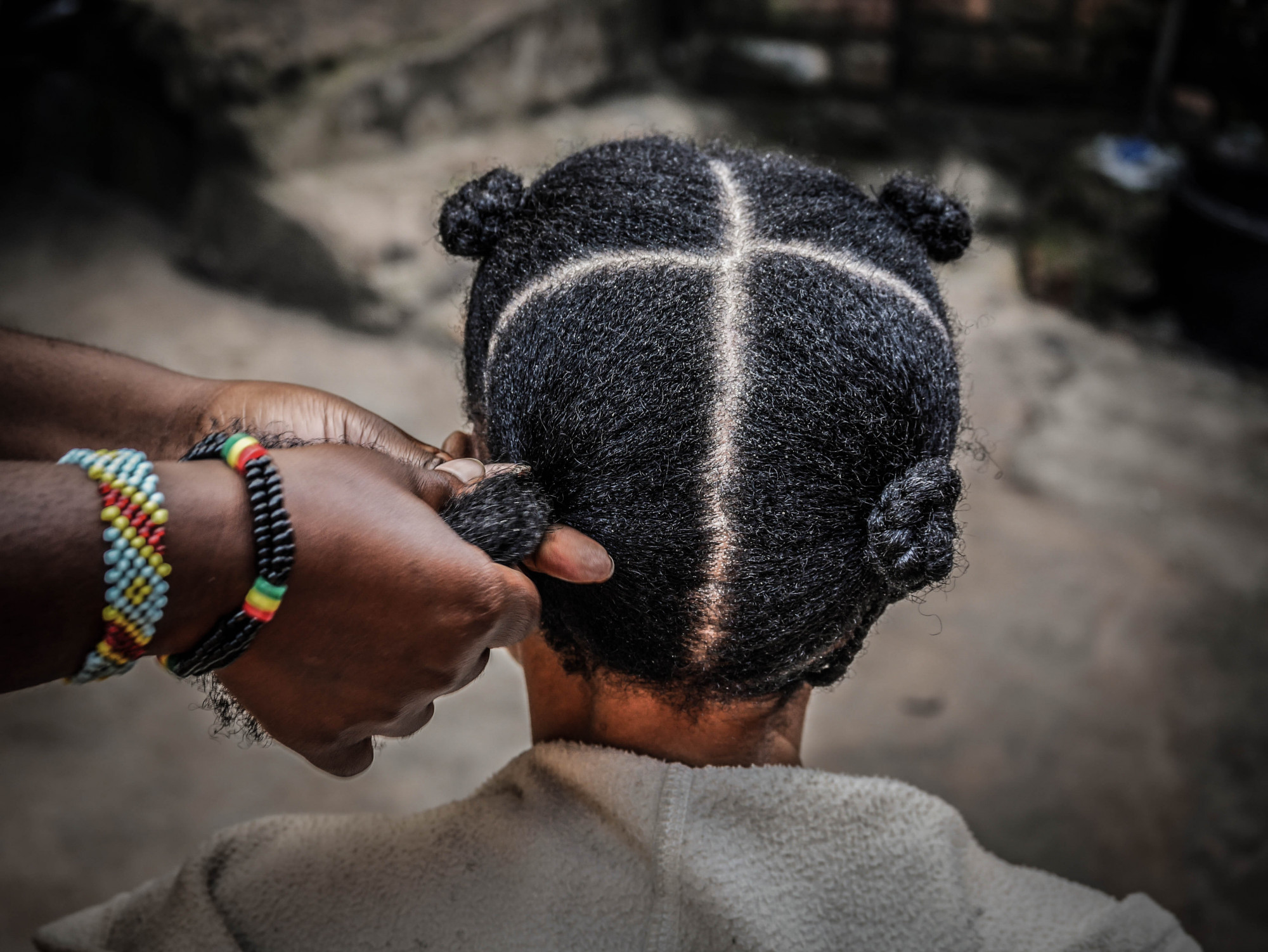
Compared to countries in Europe and North America, Congo, which has battled Ebola, measles, and cholera epidemics, has fared relatively well against coronavirus, recording 15,210 cases and 369 deaths.
Visits to the hairdresser are just as important to clients as to salons, as was illustrated by the worldwide rush of people seeking professional grooming after months of lockdowns earlier this year.
“If we just stay at home because of Covid-19 our hair will become dirty” said Nicole Saruti, a client getting her hair done in Goma. “We need to get our hair done. We negotiate the price with the hairdressers so we can still look good despite this crisis.”
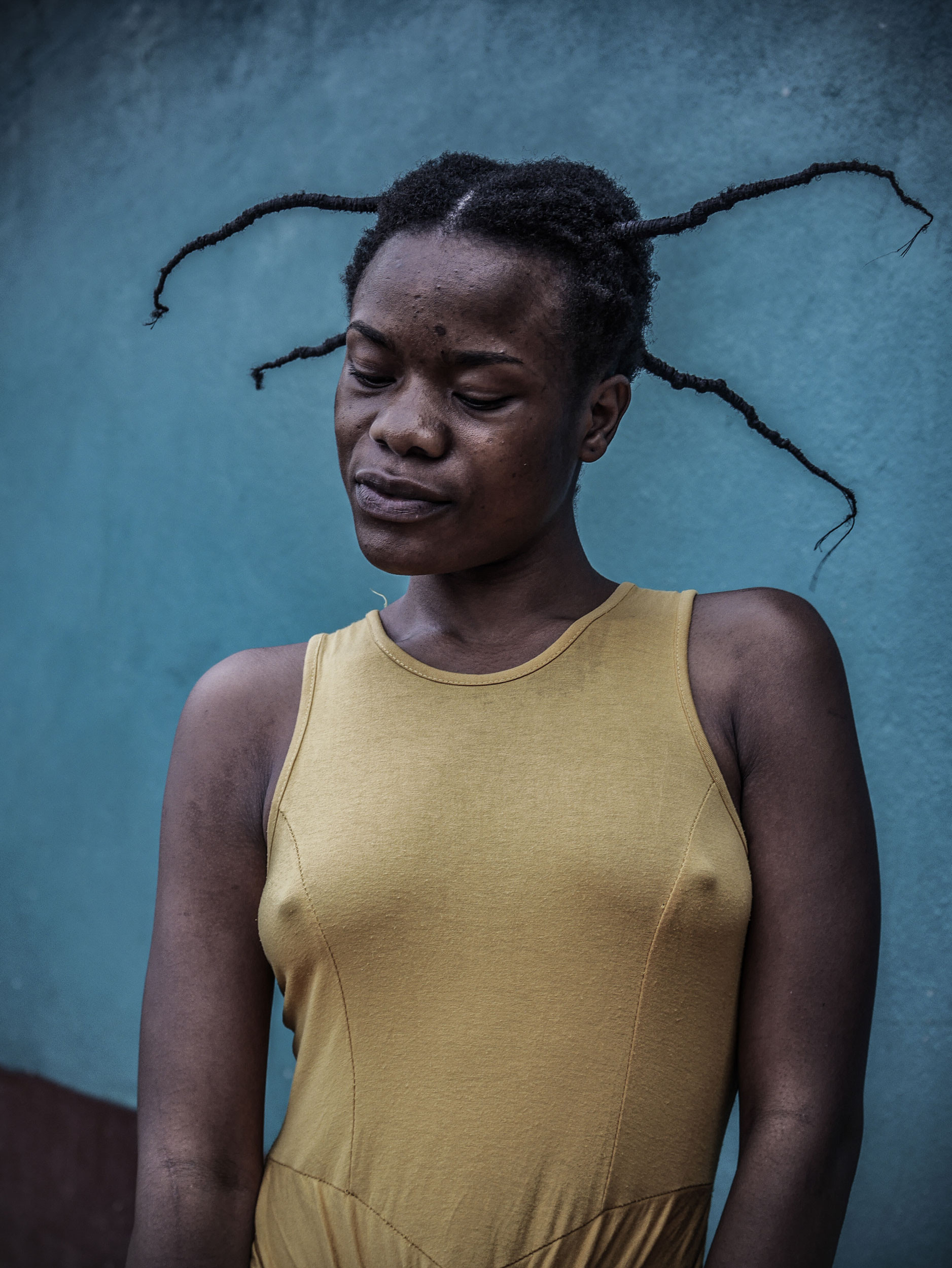
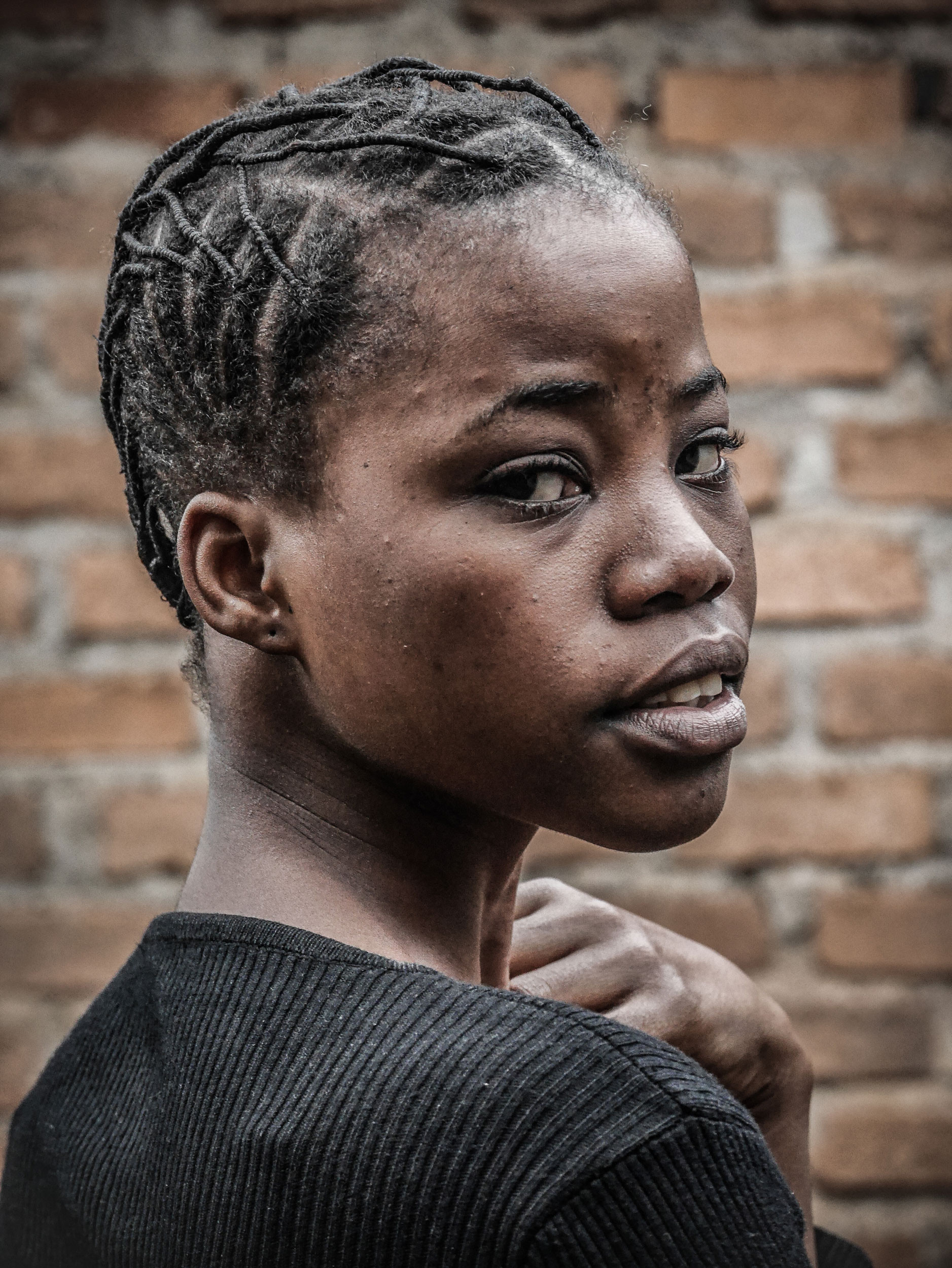
Hair fashion varies greatly across the continent, but Africa’s dry hair industry, which includes weaves, extensions and wigs, is estimated to be worth $6 billion a year. That lucrative market is driven by popular culture, media, and advertising that idealizes lighter skin tones and straight hair, leaving many African women with the belief that our thick, kinky hair needs to be modified to conform to Western or European aesthetics. Many of us use chemical products to smooth or straighten our hair, often leaving our scalps burned, but we have resigned ourselves to the old adage that being beautiful requires suffering.
In recent years there has been growing push back against the use of synthetic hair among some African women seeking to embrace their natural locks. In Congo, this movement gathered momentum this year during the Black Lives Matter protests for racial justice and empowerment, and many Congolese women moved away from using dangerous skin lightening creams and toward traditional Congolese hairstyles.
“I feel much more myself in my natural hair,” said Alice Kabuwo, 20, as she posed for a portrait in Bukavu.
The photographs shown here represent a revival of Congolese culture and illustrate how we use creativity and tradition to showcase natural hair as a symbol of pride and the reclaiming of ownership over our bodies while being comfortable and proud of our appearance without artificial products. They also show a tradition that needs to be preserved and passed on to the next generation.
